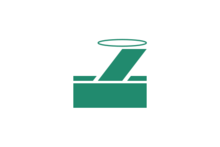imported>TheGhostOfInky |
imported>Comradeka No edit summary |
||
| Line 21: | Line 21: | ||
'''Confessionalism''' is an ideology that varies per country it's practiced in, being either economically centrist and culturally right-wing in the [[File:Cball-Netherlands.png]] Netherlands, or just a layer of bureaucracy in states like [[file:Zio.png]] Israel or [[File:Cball-Lebanon.png]] Lebanon. Typically confessionalism means "representation of religion in politics". | '''Confessionalism''' is an ideology that varies per country it's practiced in, being either economically centrist and culturally right-wing in the [[File:Cball-Netherlands.png]] Netherlands, or just a layer of bureaucracy in states like [[file:Zio.png]] Israel or [[File:Cball-Lebanon.png]] Lebanon. Typically confessionalism means "representation of religion in politics". | ||
== | == History == | ||
=== [[File:Cball-Iraq.png]] Iraq === | === [[File:Cball-Iraq.png]] Iraq === | ||
After the American invasion of Iraq a system was established, although not official but traditional, that required power to be shared between the main three ethnic groups of Iraq, Sunni Arabs, Shi'ite Arabs and Kurds, with the President being a Kurd, Speaker of Parliament being a Sunni Arab and the Prime-Minister a Shi'ite Arab. | After the American invasion of Iraq a system was established, although not official but traditional, that required power to be shared between the main three ethnic groups of Iraq, Sunni Arabs, Shi'ite Arabs and Kurds, with the President being a Kurd, Speaker of Parliament being a Sunni Arab and the Prime-Minister a Shi'ite Arab. | ||
| Line 33: | Line 33: | ||
Although it was meant to be a temporary solution "until such time as the Chamber enacts new electoral laws on a non-confessional basis", more than eighty years later, confessionalism remains the system of government implemented in Lebanon. | Although it was meant to be a temporary solution "until such time as the Chamber enacts new electoral laws on a non-confessional basis", more than eighty years later, confessionalism remains the system of government implemented in Lebanon. | ||
=== [[File:Cball-Netherlands.png]] Netherlands === | === [[File:Cball-Netherlands.png]] The Netherlands === | ||
In the Netherlands confessional parties generally adopt a economically centrist and culturally right-wing program to base their politics on, that program being influenced by the bible. The term was coined to mark the effective fuse of catholic and protestant ideologies into one ideology. Old confessional parties have later adopted [[File:Cdem.png]] [[Christian Democracy]] instead. | In the Netherlands confessional parties generally adopt a economically centrist and culturally right-wing program to base their politics on, that program being influenced by the bible. The term was coined to mark the effective fuse of catholic and protestant ideologies into one ideology. Old confessional parties have later adopted [[File:Cdem.png]] [[Christian Democracy]] instead. | ||
Revision as of 01:15, 17 June 2021
 |
Stub Article "Help" - Still-Being-Drawnism This page is a stub. You can help FreePCB by expanding it. |
Confessionalism is an ideology that varies per country it's practiced in, being either economically centrist and culturally right-wing in the ![]() Netherlands, or just a layer of bureaucracy in states like
Netherlands, or just a layer of bureaucracy in states like ![]() Israel or
Israel or ![]() Lebanon. Typically confessionalism means "representation of religion in politics".
Lebanon. Typically confessionalism means "representation of religion in politics".
History
 Iraq
Iraq
After the American invasion of Iraq a system was established, although not official but traditional, that required power to be shared between the main three ethnic groups of Iraq, Sunni Arabs, Shi'ite Arabs and Kurds, with the President being a Kurd, Speaker of Parliament being a Sunni Arab and the Prime-Minister a Shi'ite Arab.
 Israel
Israel
Among other limitations, political parties cannot deny that "Israel is a state of the Jewish people".
 Lebanon
Lebanon
The seats of the parliament are split in two, half are for Christians: 34 for Maronite, 14 for Eastern Orthodox, 5 for Armenian Orthodox, 8 for Melkite Catholics, 1 for Protestants, and 1 for other Christian minorities, and the other half is split between Muslims and Druze (the Lebanese state considers Druze to be Muslims despite the majority of Druze people not defining as Muslims and the Druze faith not adhering to the five pillars of Islam), they are as follows: 27 for Sunni Muslims, 27 for Shi'ite Muslims, 2 for Alawite Muslims, and 8 for Druze.
Additionally, the National Pact, and after the civil war, the Taif agreement stipulates that the President must always be a Maronite Christian, the Prime minister always a Sunni, the speaker of parliament always a Shia, the deputy speaker of parliament and deputy prime minister Greek Orthodox and the Chief of the General staff of the Armed forces always a Druze.
Although it was meant to be a temporary solution "until such time as the Chamber enacts new electoral laws on a non-confessional basis", more than eighty years later, confessionalism remains the system of government implemented in Lebanon.
 The Netherlands
The Netherlands
In the Netherlands confessional parties generally adopt a economically centrist and culturally right-wing program to base their politics on, that program being influenced by the bible. The term was coined to mark the effective fuse of catholic and protestant ideologies into one ideology. Old confessional parties have later adopted ![]() Christian Democracy instead.
Christian Democracy instead.
How to Draw

| Color Name | HEX | RGB | |
|---|---|---|---|
| Teal | #218A6E | 33, 138, 110 | |
| White | #FFFFFF | 255, 255, 255 | |
Relationships
TBD
Further Information
Wikipedia
| | |